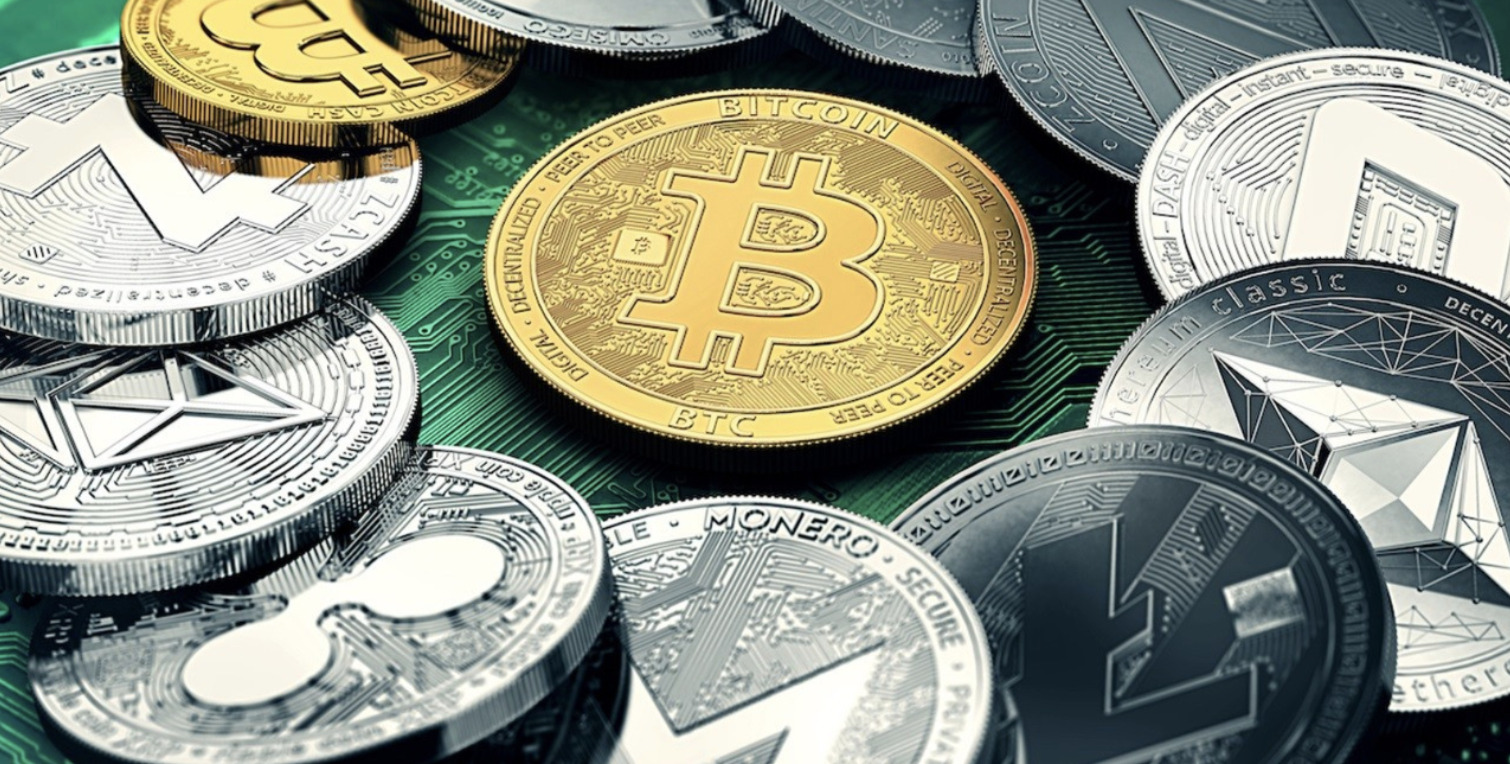The story behind Bitcoin and other altcoins: the top 10 cryptocurrencies in the world.
Bitcoin’s market capitalisation — the total theoretical value of all Bitcoins — is higher than the stock valuation of Walt Disney and Mastercard put together. But, the world’s oldest cryptocurrency isn’t the only one giving traditional stocks competition.
Ether, Cardano, Ripple and others have all surged in popularity since their inception. Every such ‘altcoin’ is large enough to be valued in billions of dollars — each valuable enough to be a unicorn company in their own right on a traditional stock exchange.
Taken together, the top ten cryptocurrencies exceed $1.2 trillion in value.
Specific currencies may be traded in larger volumes on any given day, but the overall market capitalisation keeps these currencies in the top ten..
Bitcoin (since 2009)
It is the first decentralised cryptocurrency to gain a following and grow large enough for select use cases to emerge, where it is being used as a medium of exchange online. Bitcoin still dominates the portfolio of commercial crypto investors and makes the headlines, helping raise the profile of other altcoins.
In retrospect, it was engineered well — with the real identity of Satoshi Nakamoto, the inventor of Bitcoin continuing to elude the world, allowing Bitcoin to be decentralised — and gave rise to an entire alternate financial sector which is still learning how digital currencies can be assets.
Ethereum (since 2015)
Not content with being just a currency, Ethereum makes use of the blockchain to enable other crypto applications. It serves as a platform for ‘smart contracts’, benefiting governance in finance as explained by Capgemini consulting.
Other billion-dollar crypto ‘tokens’ — cryptocurrencies based on existing blockchains — such as Tether (USDT) and Binance Coin are based on Ethereum technology, so it retains a high profile.
Cardano (since 2017)
Cardano is touted as the ‘environmentally friendly’ cryptocurrency as it aims to avoid the energy-intensive parts of the mining process seen with Bitcoin. It is the first large cryptocurrency to be based on the ‘proof of stake’ model. This model means all those who hold Cardano can vote on its direction.
Many real-world projects are based on Cardano, such as tracking fresh agricultural produce, tamper-proofing educational credentials and identifying counterfeit retail goods.
Ripple XRP (since 2013)
Also called OpenCoin, XRP is used by some financial institutions — like Axis Bank and Yes Bank — to transfer payments across borders faster and cheaper than existing systems, like NEFT, RTGS, or the most commonly used SWIFT.
Ripple is the name of the blockchain network, and XRP is the name of the coin. While being one of the biggest cryptocurrencies in the market, XRP has attracted scrutiny from the Securities and Exchange Commission (SEC) due to its impact on fiat currencies.
The ongoing case will determine whether XRP is an ‘investment contract’ — and thus a security — under US securities laws. The ruling may set the standard for how XRP is treated in other parts of the world as well.
Dogecoin (since 2013)
With a cute Shiba Inu dog as its mascot and Elon Musk’s love, the sky is theoretically the limit for this coin that was created as a parody on a meme.
Dogecoin was used for tipping on forums online and occasionally for donations. It is one of the few top altcoins with no limit to the number of coins that can be mined, and thus supply is unlimited over time.
Polkadot (since 2017)
Seen as an Ethereum-killer by Forbes, this project by a Swiss research foundation is also based on blockchain. Transacting with this coin is expected to be cheaper and faster than older cryptocurrencies, because of how it is built.
Bitcoin Cash (since 2017)
This coin emerged when the Bitcoin community split in 2017 over the direction it should take. Bitcoin Cash may have a lower exchange value than its cousin Bitcoin, but it offers faster transaction speeds and lower transaction fees.
Solana (since 2020)
Solana is intended to be used for decentralized finance (DeFi) solutions running on top of its blockchain. At last count, 304 dApps are built upon Solana, and its ability to integrate with tokens from other networks makes it more attractive to application developers.
Unlike other blockchains that use either ‘proof of stake’ or ‘proof of work’ to verify transactions, Solana is significant for using a ‘proof of history’ consensus, where all computers process and agree on the order of events.
Litecoin (since 2011)
Made as a ‘lite version of Bitcoin’, Litecoin retains the same strengths as its parent currency. While the status of Bitcoin is still being debated, Litecoin aspires to be used more as a currency, accordingly being secure yet more efficient for smaller merchant transactions.
Being priced lower than Bitcoin, it has been called the silver to Bitcoin’s gold. Trading well below its ‘all time high’ since three years, investors expect an increase in the price of Litecoin over the next two years, when the next halving occurs. Halving refers to the reduction in reward received in return for coin mining.
Stellar (since 2014)
Like Ripple XRP, Stellar Lumens functions as a payment network to connect financial institutions using blockchain technology. Private firms across the world announced plans to use this protocol, including ICICI Bank. It claims an advantage in settling transactions denominated in any asset at low cost and high speed.

